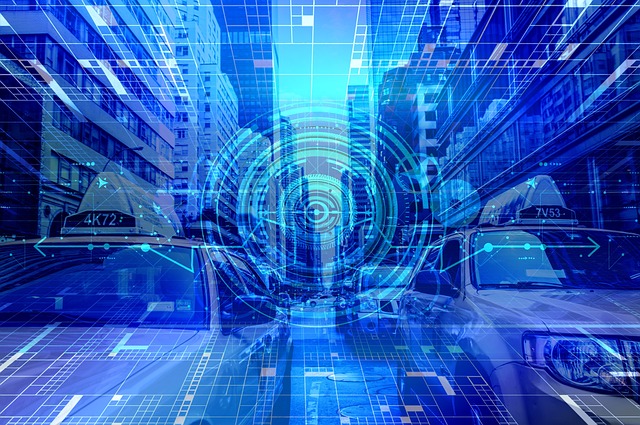The Future of Finance: AI Trading Explored
Author: Jameson Richman Expert
Published On: 2024-08-12
Prepared by Jameson Richman and our team of experts with over a decade of experience in cryptocurrency and digital asset analysis. Learn more about us.
Artificial intelligence (AI) has revolutionized various sectors, and the financial market is no exception. AI trading has emerged as a game-changing technology that provides enormous potential for enhancing trading efficiency, accuracy, and profitability. In this article, we will explore the intricacies of AI trading, its advantages, challenges, and future perspectives while integrating a human touch through personal insights and opinions.

What is AI Trading?
AI trading involves the use of algorithms and artificial intelligence techniques to analyze financial data, predict market trends, and execute trades with minimal human intervention. These systems leverage vast amounts of historical market data to identify patterns, making decisions faster than any human trader possibly could.
How AI Trading Works
The core workings of AI trading generally involve:
- Data Collection: AI systems gather data from various sources, including stock market prices, news articles, social media sentiment, and economic indicators.
- Data Processing: Through machine learning algorithms, AI processes this data to uncover hidden patterns and insights that may elude traditional analysis.
- Prediction Models: Predictive analytics and algorithms forecast potential future market movements based on the identified patterns.
- Execution: Once a trading opportunity is identified, AI systems can automatically execute buy or sell orders in real-time, ensuring optimal prices and reduced latency.
Types of AI Trading Strategies
AI trading leverages various strategies tailored to different market conditions:
- Algorithmic Trading: Automated trading strategies that follow predefined rules and parameters.
- Machine Learning Models: Algorithms that adapt and evolve based on new data, enhancing their predictive accuracy over time.
- Sentiment Analysis: AI examines market sentiment from social media and news articles to gauge public perception and predict market movements.
- High-Frequency Trading (HFT): Utilizing algorithms to execute numerous trades at extremely high speeds, capitalizing on minute price discrepancies.
The Advantages of AI Trading
AI trading offers several notable benefits:
1. Enhanced Market Analysis
The ability to sift through enormous volumes of data quickly and accurately is one of the key attributes that make AI trading superior. With traditional methods, traders might miss significant details buried within the data. In my opinion, the enhanced analytical capabilities of AI provide traders with a more comprehensive view of market dynamics, allowing for more informed decision-making.
2. Speed and Efficiency
AI systems can execute trades within milliseconds, far surpassing human reaction times. This speed enables traders to capitalize on fleeting market opportunities that would typically go unnoticed. As someone who deeply values efficiency, I believe this advantage cannot be overstated—especially in a world where market conditions change rapidly.
3. Emotion-Free Trading
One of the most significant challenges human traders face is emotional trading, often resulting in poor decisions fueled by fear or greed. AI, however, relies on data, logic, and algorithms, eliminating emotional biases. In my view, this objectivity is a powerful tool in enhancing trading results.
Challenges Facing AI Trading
Despite the numerous advantages, AI trading also presents several challenges:
1. Market Volatility
Financial markets are notoriously unpredictable. AI algorithms, while powerful, rely on historical data that may not always predict future events accurately. In my opinion, this intrinsic limitation underscores the necessity for continuous improvement of AI models to adapt to changing market dynamics.
2. Data Quality and Quantity
The effectiveness of AI trading is heavily dependent on the quality and volume of data feeding the algorithms. Misinformation or biased data can lead to erroneous trading decisions. Therefore, traders must prioritize reliable data sources. I often find myself questioning the origin and integrity of the data used in AI systems, which can influence overall trading success.
3. Regulatory Challenges
As AI trading becomes more prominent, regulatory bodies are beginning to scrutinize algorithm-driven trading practices. Ensuring compliance with legal frameworks is crucial to mitigate risks associated with market manipulation or unethical trading practices. It is essential for traders and firms to stay informed about evolving regulations, as failure to comply can have serious repercussions.

The Future of AI Trading
As we look to the future, the realm of AI trading is poised for substantial growth. Here are some trends that may shape its trajectory:
1. Increased Integration with Blockchain Technology
AI and blockchain are both ripe for innovation in the financial sector. The decentralized nature of blockchain combined with AI’s analytical capabilities can create stronger, more efficient trading platforms. Personally, I find this intersection fascinating, as it could enhance transparency and security in trading transactions.
2. Advanced Personalization
With ongoing advancements in machine learning, AI trading platforms will likely evolve to offer personalized trading experiences tailored to individual risk appetites and investment goals. I believe this level of personalization will significantly appeal to retail investors who are seeking more control over their investment strategies.
3. Ethical AI Trading Practices
As AI trading continues to grow, the conversation around ethical practices will become increasingly important. Striking a balance between leveraging AI capabilities and ensuring responsible trading practices will be crucial for building trust among investors. I feel that fostering these ethical standards is not just a necessity but a moral imperative in a technology-driven future.
Conclusion
AI trading undoubtedly has the potential to revolutionize the financial industry, offering a plethora of advantages while also posing unique challenges. As we continue to innovate and evolve, it is essential for traders, regulators, and technologists to collaborate in creating an environment that fosters both efficiency and ethical practices. In my opinion, embracing AI trading is not just about enhancing profitability, but about reshaping the future of investment in a more intelligent, responsible, and transparent manner.
In summary, AI trading is more than a buzzword; it represents a substantial shift in how we perceive and engage with financial markets. As technology advances, staying informed and adaptive will be crucial for those wishing to thrive in this new financial landscape.